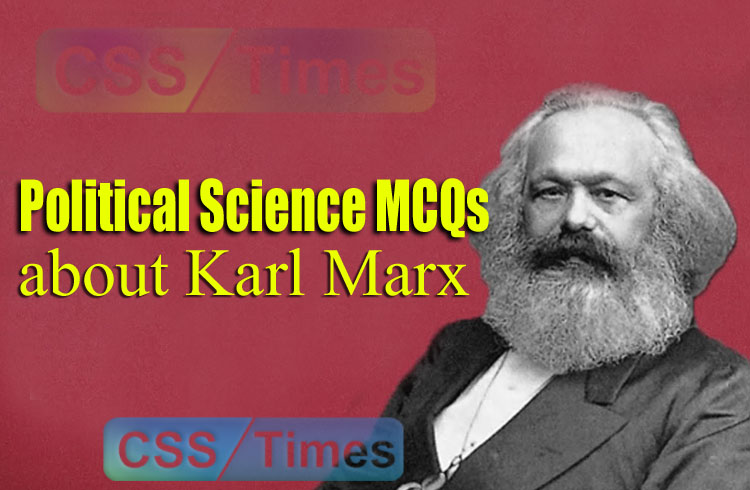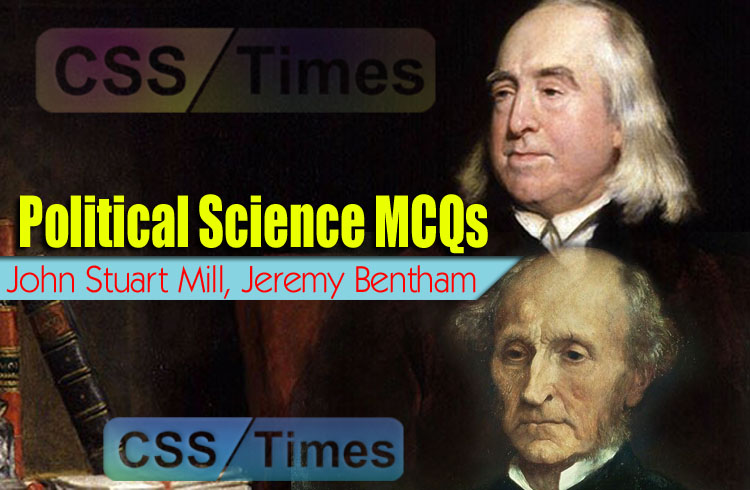Who among the following argued that justice is the first virtue of social institutions?
(a) G.W.F. Hegel
(b) Karl Marx
(c) Charles Taylor
(d) John Rawls
Answer: (d)
Materialistic interpretation of history was propounded by: (CSS-2000)
(a) Trotsky
(b) Lenin
(c) Bolsheviks
(d) Mensheviks
(e) Karl Marx
Answer: (e)
Explanation: Marx’s theory, which he called “historical materialism” or the “materialist conception of history” is based on Hegel’s claim that history occurs through a dialectic, or clash, of opposing forces. Hegel was a philosophical idealist who believed that we live in a world of appearances, and true reality is an ideal. Marx accepted this notion of the dialectic, but rejected Hegel’s idealism because he did not accept that the material world hides from us the “real” world of the ideal; on the contrary, he thought that historically and socially specific ideologies prevented people from seeing the material conditions of their lives clearly.

